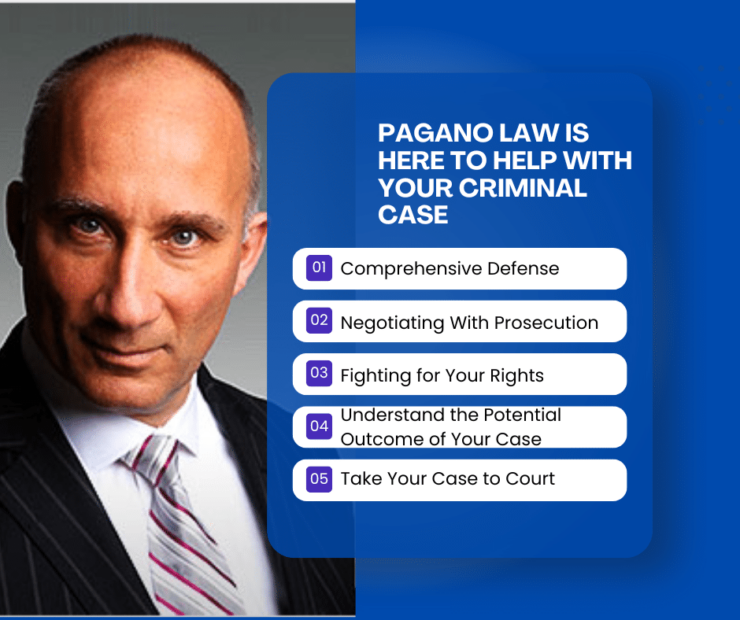When facing criminal charges, the attorney you choose can make the difference between freedom and incarceration. The criminal justice system is complex and intimidating, designed with countless procedural rules that can trap the unprepared. A skilled criminal defense lawyer doesn’t just represent you in court—they become your guide, advocate, and sometimes your only ally in a system that can feel stacked against you.
This guide will walk you through the critical process of finding the right criminal defense attorney for your case, helping you understand what to look for and which questions to ask during this pivotal decision.
Why Your Choice of Criminal Defense Attorney Matters
The consequences of criminal charges extend far beyond the courtroom. A conviction can impact your freedom, employment opportunities, housing options, family relationships, and reputation in your community. Many people make the mistake of thinking all lawyers are essentially the same, but the reality is that experience and specialization matter tremendously in criminal law.
Criminal defense requires specific knowledge of constitutional law, evidence rules, police procedures, and local court practices. An attorney who primarily handles divorces or personal injury cases simply won’t have the specialized experience needed to effectively defend against criminal charges.
Your freedom is too important to entrust to someone without the right expertise. Finding an attorney who specializes in criminal defense, and ideally in cases similar to yours, should be your top priority.

Begin Your Search With Research
The search for the right criminal defense lawyer starts with thorough research. While time might feel limited, especially if you or a loved one is in custody, investing effort in this stage can pay enormous dividends later.
Start by seeking recommendations from trusted sources who have firsthand experience. While this might feel uncomfortable, confidential conversations with friends or family members who have faced criminal charges could provide valuable insights about effective local attorneys.
Bar association referral services in your area can provide lists of attorneys who focus on criminal defense. Many offer free initial consultations, allowing you to speak with several potential lawyers before making your decision.
Online research provides another valuable avenue. Look beyond flashy websites to find meaningful information about an attorney’s experience and results. Client reviews, while sometimes biased, can reveal patterns about an attorney’s communication style, accessibility, and general approach to cases.
Pay particular attention to attorneys who have experience in the specific court where your case will be heard. Local experience means the lawyer understands the tendencies of prosecutors and judges in your jurisdiction—knowledge that can be invaluable when developing defense strategies.
Evaluate Experience and Specialization
Not all criminal defense experience is equal. Criminal law encompasses everything from DUI cases to complex white-collar crimes and violent felonies. The attorney who brilliantly handles drug possession cases might not be the best choice for fraud allegations.
When researching potential attorneys, look for those who regularly handle cases similar to yours. An attorney who focuses primarily on the type of charge you’re facing will have deeper knowledge of relevant defenses, potential plea options, and typical outcomes.
Consider whether the attorney has trial experience. While most criminal cases end in plea agreements, you want someone who is prepared and willing to take your case to trial if necessary. Some attorneys build their practice around quick plea deals rather than fighting charges in court. While there’s nothing inherently wrong with resolving cases efficiently, you deserve representation from someone who will advocate vigorously if your case requires it.
Former prosecutors can make excellent defense attorneys because they understand how the other side builds cases. However, this background alone doesn’t guarantee quality representation. What matters most is their track record defending clients in situations similar to yours.
Schedule Consultations with Multiple Attorneys
Most criminal defense attorneys offer free or low-cost initial consultations. Take advantage of this opportunity to meet with several lawyers before making your decision. These meetings provide invaluable insight into how each attorney communicates, their level of interest in your case, and their preliminary thoughts on defense strategies.
Prepare for these consultations by gathering relevant documents and writing down questions beforehand. Be ready to provide a straightforward account of the facts surrounding your case. Remember that attorney-client privilege protects these discussions even if you ultimately hire someone else.

During the consultation, assess how well the attorney listens. Do they give you their full attention, or do they seem distracted? Do they ask thoughtful questions that demonstrate understanding of your situation? An attorney who dominates the conversation without listening to your concerns may approach your defense the same way.
Pay attention to how clearly they explain legal concepts. A good attorney should be able to translate complex legal principles into terms you can understand without talking down to you. If you leave the consultation feeling confused, this might not be the right match.
Consider Communication and Accessibility
The criminal justice process can be lengthy and stressful. Throughout this time, you’ll need an attorney who communicates regularly and responds promptly to your questions. During consultations, ask potential attorneys about their communication practices. How quickly do they typically return calls or emails? Will you work primarily with them or with other staff members? How often can you expect updates on your case?
Be wary of attorneys who make unrealistic promises about outcomes. Criminal cases involve too many variables for absolute guarantees. An ethical attorney will outline potential scenarios and strategies while being honest about challenges.
Trust your instincts about personal compatibility. Your attorney doesn’t need to become your friend, but you should feel comfortable discussing sensitive information with them. The criminal defense process requires honest communication in both directions—you need someone you can trust with difficult truths.
Understand Fee Structures
Criminal defense representation typically involves significant costs, but fee structures vary widely between attorneys. During consultations, ask detailed questions about how fees are calculated and billed. Some attorneys charge flat fees for specific types of cases, while others bill hourly. Many require an upfront retainer from which they draw as work is completed.
Get clarity on what services are included in quoted fees. Does the fee cover pretrial work only, or does it include trial representation? Are there additional costs for expert witnesses, investigators, or specialized motions? What happens financially if your case becomes more complex than initially anticipated?
While cost shouldn’t be the only factor in your decision, it’s a practical consideration. A more experienced attorney may charge higher rates but might resolve your case more efficiently or achieve better outcomes. Some attorneys offer payment plans to make quality representation more accessible.

The Value of Local Experience
The importance of local experience cannot be overstated in criminal defense. Each court operates with its own unwritten rules and practices. Prosecutors in different jurisdictions have varying policies regarding plea agreements and charging decisions. Judges have individual preferences about courtroom procedures and sentencing approaches.
An attorney familiar with your local court system will understand these nuances, potentially saving you time, money, and stress. They’ll know which arguments are likely to resonate with specific judges and which prosecutors are willing to negotiate reasonably. This insider knowledge forms a crucial part of effective representation.
Additionally, established local attorneys have professional relationships within the system. Pagano Law continues to grow its regional presence and capabilities—most recently expanding its criminal defense services into Delaware—to better serve clients facing charges across state lines. While these relationships never guarantee outcomes, they can facilitate smoother communication and sometimes lead to more favorable negotiating positions. An attorney who has earned respect in your local courts brings that credibility to your case.
Trust Your Decision but Stay Engaged
After selecting an attorney, place your trust in their expertise while remaining actively engaged in your defense. Provide all requested information promptly, follow their advice regarding communications about your case, and attend all meetings and court appearances as directed.
Remember that while your attorney provides guidance and representation, the case remains yours. Ask questions when you don’t understand something. If you have concerns about the direction of your defense, discuss them openly with your attorney. The most effective attorney-client relationships involve mutual respect and clear communication.
Your Next Step: Contact Pagano Law
When your future is at stake, you need experienced, dedicated criminal defense representation from attorneys who understand Pennsylvania’s criminal justice system. At Pagano Law, we bring decades of criminal defense experience to every case, fighting tirelessly to protect our clients’ rights and freedom.
Our approach combines aggressive advocacy with strategic thinking, all while keeping you informed and involved throughout the process. We understand that facing criminal charges is overwhelming—that’s why we focus not just on legal strategies, but on supporting you through this challenging time.
Don’t wait to secure the representation you deserve. Contact Pagano Law today at 215-636-0160 for a confidential consultation about your case. Your freedom is worth fighting for, and we’re ready to stand beside you.

Recent Comments